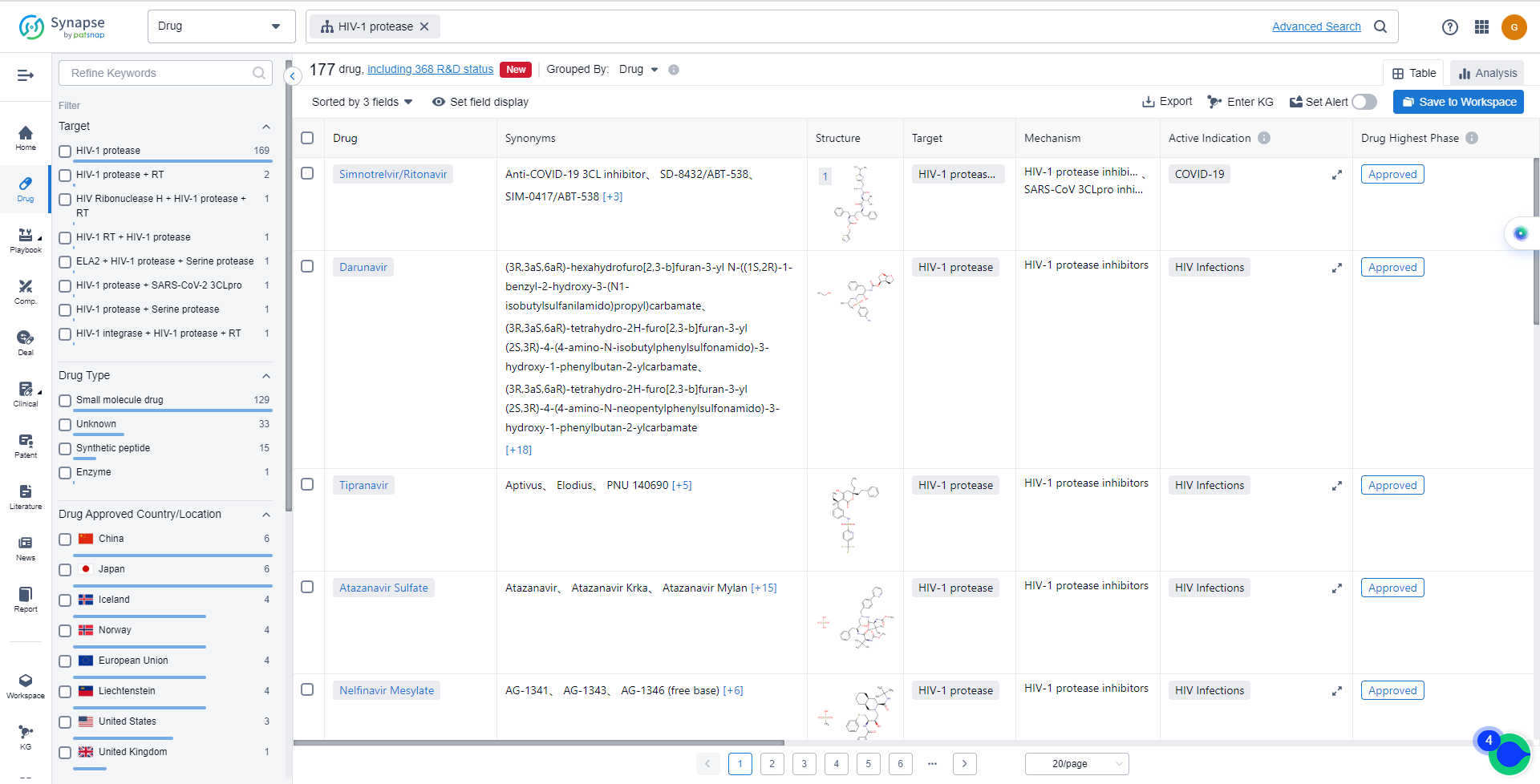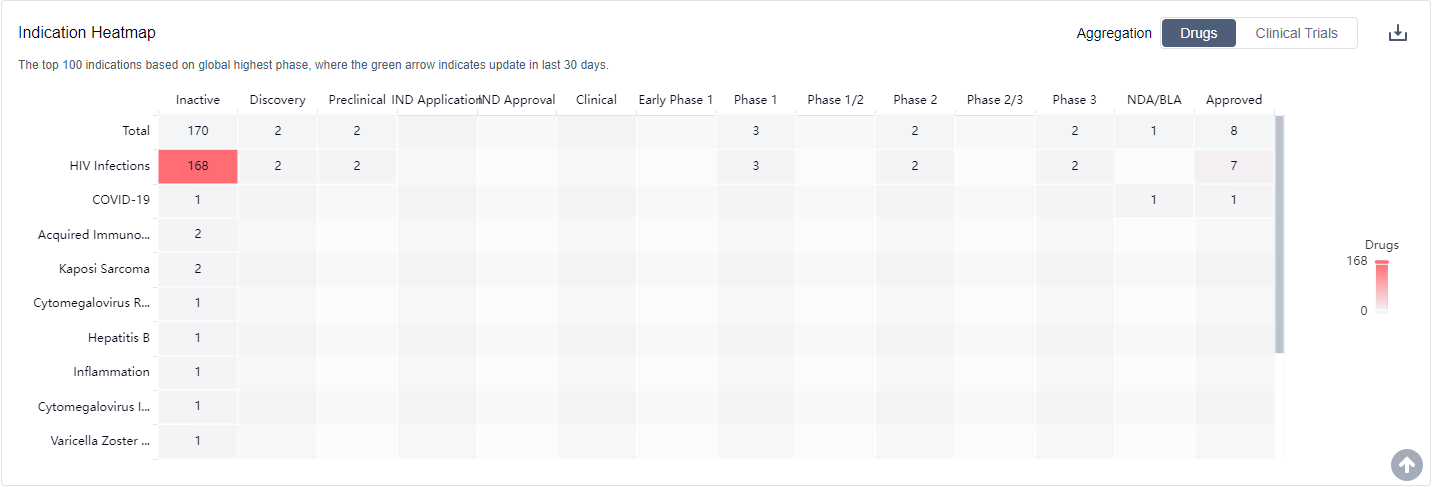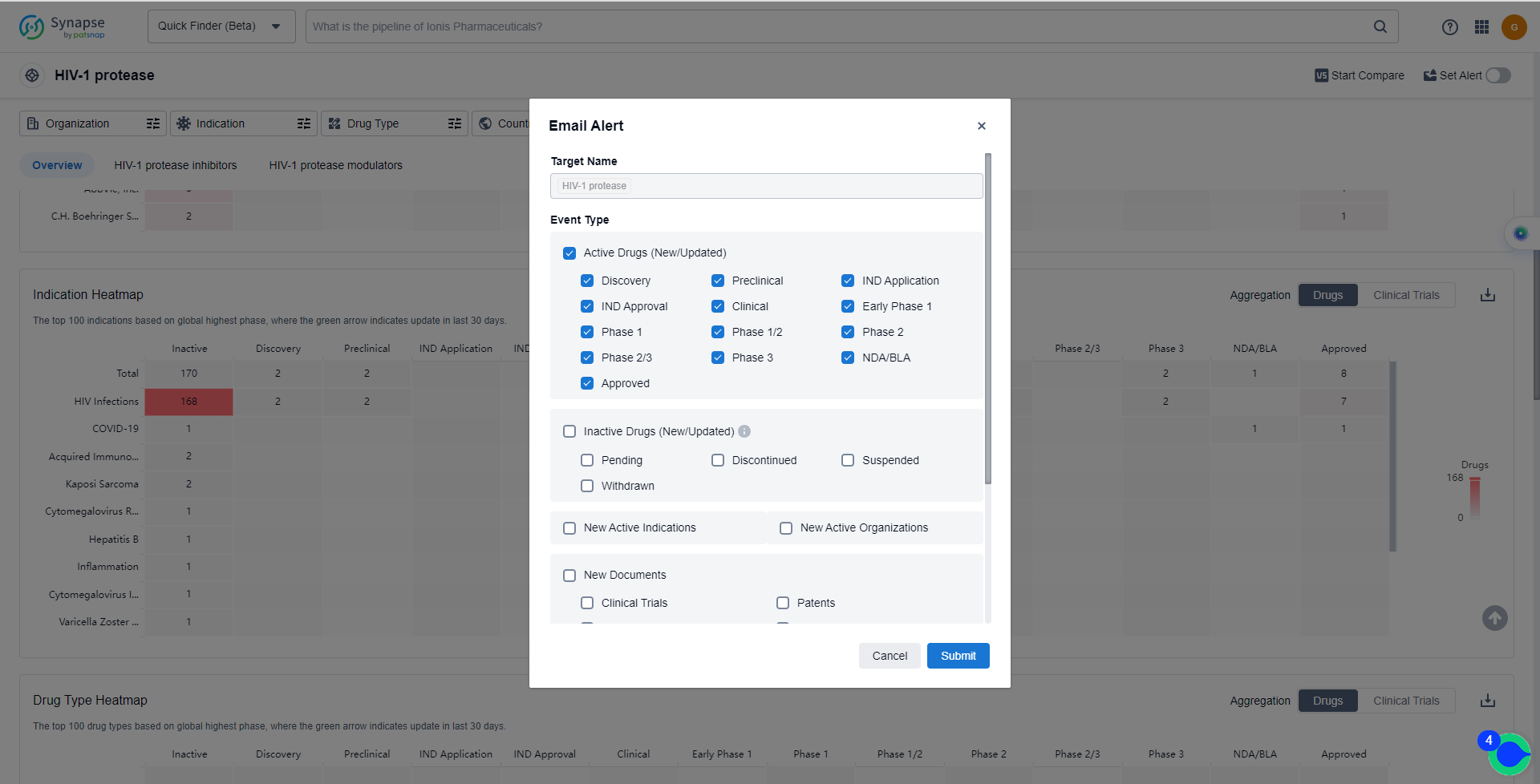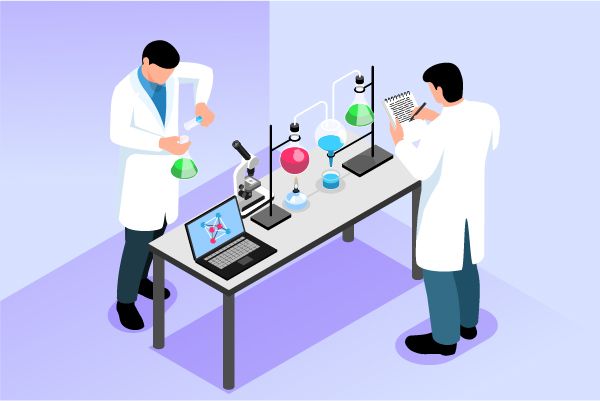What are HIV-1 protease inhibitors and how do you quickly get the latest development progress?
HIV-1 protease is an enzyme that plays a crucial role in the replication of the human immunodeficiency virus (HIV-1) within the human body. It is responsible for cleaving long viral polyproteins into smaller functional proteins, which are essential for the assembly of new infectious viral particles. By targeting and inhibiting the activity of HIV-1 protease, antiretroviral drugs can effectively disrupt the viral replication cycle, preventing the production of mature and infectious HIV particles. This inhibition is vital in managing HIV infection and reducing the viral load in patients, ultimately improving their immune function and slowing down the progression of the disease.
HIV-1 protease inhibitors,are a class of drugs used to treat HIV by blocking the virus from entering certain cells in the body and making copies of itself. The first highly selective antagonists against the HIV protease were revealed in 1987. Phase I trials of saquinavir began in 1989, and it was the first HIV protease inhibitor to be approved for prescription use in 1995. Four months later, two other protease inhibitors, ritonavir and indinavir, were approved. Since then, several other PIs have been developed, including atazanavir, darunavir, and lopinavir.
The future of HIV-1 protease inhibitors looks promising, with ongoing research into new PIs and other antiretroviral drugs. Researchers are also investigating the potential of PIs to treat other diseases, such as Alzheimer’s disease, multiple sclerosis, and certain types of cancer. However, there are also concerns about the long-term effects of PI use, such as an increased risk of diabetes and liver damage. As such, further research is needed to fully understand the benefits and risks of these drugs.
The mechanism of action of HIV-1 protease inhibitors
HIV-1 protease inhibitors are a class of drugs used in the treatment of HIV/AIDS. HIV-1 is the most common strain of the human immunodeficiency virus (HIV) that causes AIDS. Protease inhibitors are medications that specifically target the enzyme called HIV-1 protease, which plays a crucial role in the replication of the virus.
From a biomedical perspective, HIV-1 protease inhibitors work by binding to the active site of the HIV-1 protease enzyme, preventing it from cleaving viral polyproteins into functional proteins. By inhibiting this process, the protease inhibitors effectively block the maturation of new viral particles, reducing the viral load in the body and slowing down the progression of HIV infection.
These inhibitors are typically used in combination with other antiretroviral drugs as part of highly active antiretroviral therapy (HAART). HAART aims to suppress the replication of HIV, improve immune function, and delay the onset of AIDS-related complications. HIV-1 protease inhibitors have been shown to be effective in reducing viral replication, improving immune response, and increasing the lifespan and quality of life for individuals living with HIV/AIDS.
It's important to note that HIV-1 protease inhibitors are prescription medications and should only be used under the guidance and supervision of a healthcare professional. They may have potential side effects and drug interactions, so it's crucial to follow the prescribed dosage and discuss any concerns with a healthcare provider.
Catalog of HIV-1 protease Inhibitors
The currently marketed HIV-1 protease inhibitors include:
- Simnotrelvir/Ritonavir
- Darunavir
- Tipranavir
- Atazanavir Sulfate
- Nelfinavir Mesylate
- Ritonavir
- Indinavir Sulfate
- Saquinavir Mesylate
- Lopinavir
- NARDG-35
For more information, please click on the image below.
What is the purpose of using HIV-1 protease inhibitors?
HIV-1 protease inhibitors are mainly used to achieve a functional cure of AIDS For more information, please click on the image below to log in and search.
How can I get the most recent advancements in HIV-1 protease inhibitors?
In the Synapse database, you can keep abreast of the latest research and development advances of HIV-1 protease inhibitors anywhere and anytime, daily or weekly, through the "Set Alert" function. Click on the image below to embark on a brand new journey of drug discovery!








